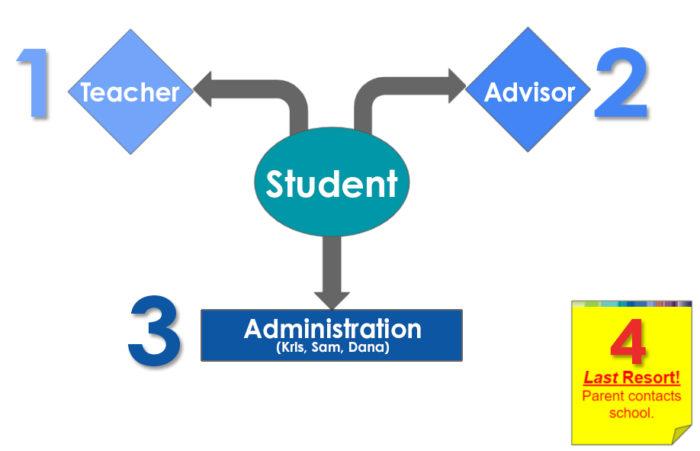Raising Independent, Confident Teens
Written by Dana Herzberg, JGS Head of School, and Samantha DePalo, JGS Director of Curriculum and Instruction
Parents: we are empowering you to help your child become a mindful, independent, problem-solving, self-advocating student! Please join us in reminding your child that they can do hard things. Here are some ways you can promote your child’s growth in tandem with what we are doing at JGS.
1. Remind them to lean into struggle. Without struggle, there can be no growth. If everything were easy, no one would develop the confidence needed to tackle challenges that we all face (now and in the future). Think of this as your child’s most important life preparedness skill. It is our collective responsibility to make sure that they leave JGS knowing that they can do hard things!
2. Let them vent without reacting and without solving the problem for them. As parents, we must listen to our children and provide them with guidance and support. Allowing them to vent is one way that they can express their emotions. However, not every emotion needs to be escalated to a point of you solving the problem. In fact, many times, it is best that we do nothing because empowering them to solve their own problems develops confidence, self-esteem, and self-advocacy skills needed for college and independent living.
3. Encourage self-advocacy by asking the teacher for help. Student-to-teacher communication is paramount. There are many ways to do this: in-person, email, or MyJGS. Students need to learn to approach their teachers in the same way that they will someday need to approach a boss or a co-worker. Learning to effectively communicate with people in leadership is not only an essential skill to learn but one that requires ongoing practice. Effective communication builds stronger relationships and rapport which ultimately makes it easier to discuss hard things. The JGS teaching team reports that the #1 problem for our HS students (historically) has been communicating with teachers via email. As we all know, this does not bode well for college (or the workplace)… Have your students start practicing this skill as soon and as often as possible. By the time they graduate, it should be absolutely second nature.
4. Your child comes to you and you feel compelled to take action. Where do you begin? Always start by asking one simple question: “Have you talked to your teacher about how you are feeling?” If not, encourage them to start here. If so, and they still feel as though there is an unresolved issue, ask if they have spoken to their advisor. Before reaching for the phone to contact the school, ask them if they have talked to the Administration (Sam, Kris, or Dana). If they have, KUDOS to them for self-advocating! Now, it is appropriate for you to get involved!
5. Remember that grades do not tell the whole story. Do not rely on grades as a measure of your child’s progress in any given class. For one, it takes time for grades to update. Second, there are opportunities, in every class, for students to learn from their mistakes and independently improve their learning, mastery, and, therefore, grade. Much of this process, not coincidentally, requires clear communication between the student and the teacher. Separately, grades do not reflect what we call “soft skills,” such as effort, grit, perseverance, mindset, attitude, etc. If your child earned a “C,” for instance, but learned that they could do hard things, they have been successful!
6. Remind them that it’s normal to have work to do in high school! It’s also normal to balance after-school activities with studying, homework, and even a job. Most of us can remember juggling sports, clubs, activities, jobs, SAT prep, coursework/homework, etc. when we were in high school. We all know that JGS keeps holistic, whole-child education at the center of our pedagogy, but in the upper grades, students need to develop the essential life skill of completing work outside of school. Let’s collectively ban the excuse: “I’m tired.” We all are! 🙂
Rely on this visual for improving communication while honing independent, confident teens:

We know that this is a new year for all of our students. We have some new teachers, new expectations, and new programming. Change is hard, but inevitable in any situation. The good news is that we can embrace change as a learning opportunity, knowing that we are all here to support one another!

